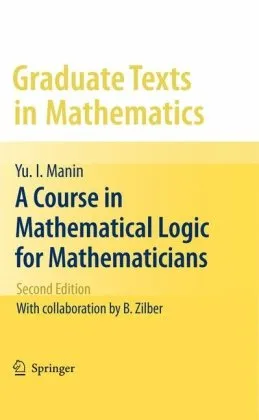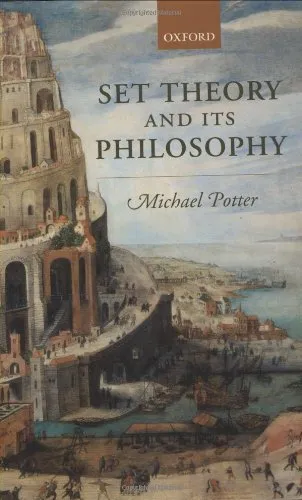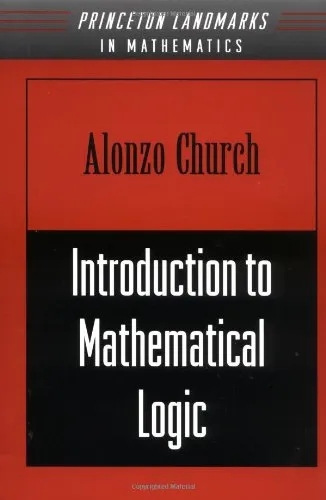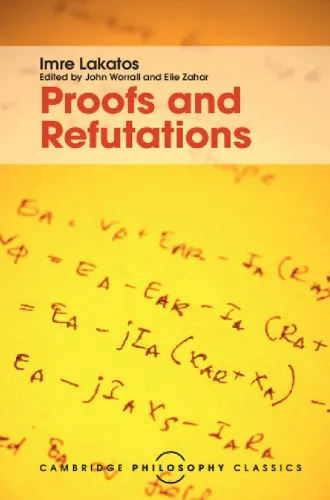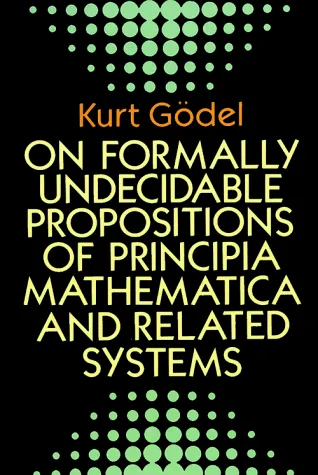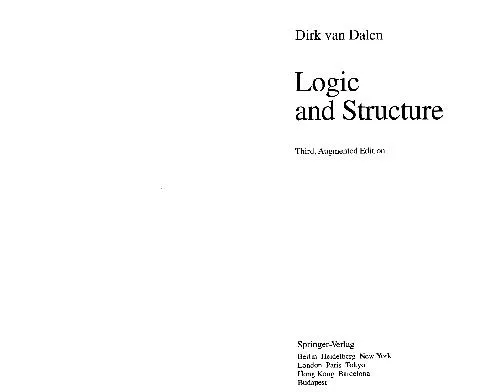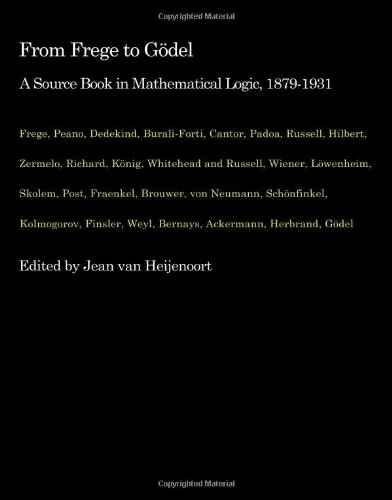A Course in Mathematical Logic for Mathematicians
4.7
Reviews from our users

You Can Ask your questions from this book's AI after Login
Each download or ask from book AI costs 2 points. To earn more free points, please visit the Points Guide Page and complete some valuable actions.Related Refrences:
A Course in Mathematical Logic for Mathematicians, Second Edition offers a straightforward introduction to modern mathematical logic that will appeal to the intuition of working mathematicians. The book begins with an elementary introduction to formal languages and proceeds to a discussion of proof theory. It then presents several highlights of 20th century mathematical logic, including theorems of Gödel and Tarski, and Cohen's theorem on the independence of the continuum hypothesis. A unique feature of the text is a discussion of quantum logic.The exposition then moves to a discussion of computability theory that is based on the notion of recursive functions and stresses number-theoretic connections. The text present a complete proof of the theorem of Davis–Putnam–Robinson–Matiyasevich as well as a proof of Higman's theorem on recursive groups. Kolmogorov complexity is also treated.Part III establishes the essential equivalence of proof theory and computation theory and gives applications such as Gödel's theorem on the length of proofs. A new Chapter IX, written by Yuri Manin, treats, among other things, a categorical approach to the theory of computation, quantum computation, and the P/NP problem. A new Chapter X, written by Boris Zilber, contains basic results of model theory and its applications to mainstream mathematics. This theory has found deep applications in algebraic and diophantine geometry.Yuri Ivanovich Manin is Professor Emeritus at Max-Planck-Institute for Mathematics in Bonn, Germany, Board of Trustees Professor at the Northwestern University, Evanston, IL, USA, and Principal Researcher at the Steklov Institute of Mathematics, Moscow, Russia. Boris Zilber, Professor of Mathematical Logic at the University of Oxford, has contributed the Model Theory Chapter for the second edition.
Free Direct Download
You Can Download this book after Login
Accessing books through legal platforms and public libraries not only supports the rights of authors and publishers but also contributes to the sustainability of reading culture. Before downloading, please take a moment to consider these options.
Find this book on other platforms:
WorldCat helps you find books in libraries worldwide.
See ratings, reviews, and discussions on Goodreads.
Find and buy rare or used books on AbeBooks.
1394
بازدید4.7
امتیاز0
نظر98%
رضایتReviews:
4.7
Based on 0 users review
Questions & Answers
Ask questions about this book or help others by answering
Please login to ask a question
No questions yet. Be the first to ask!
